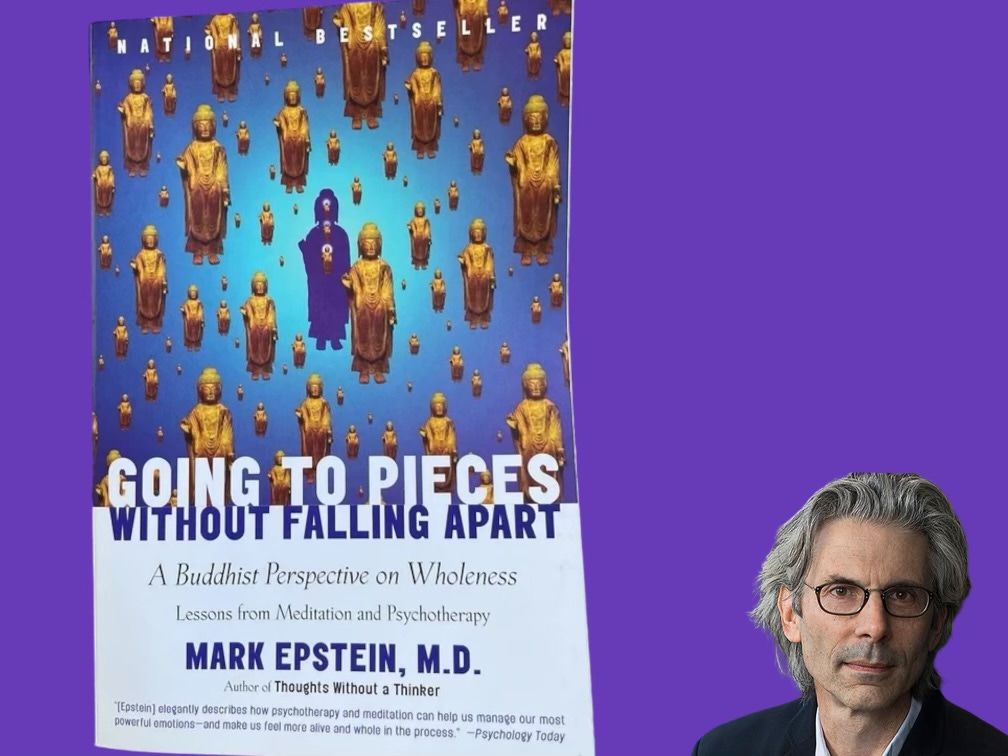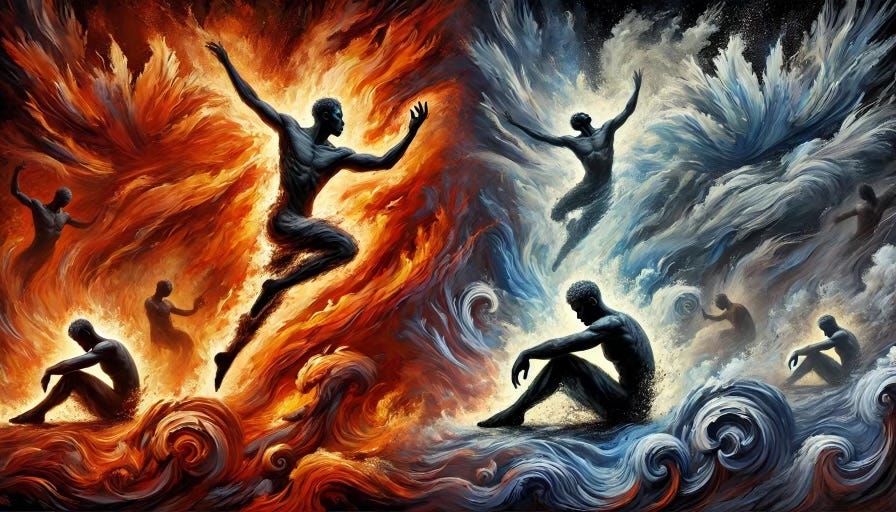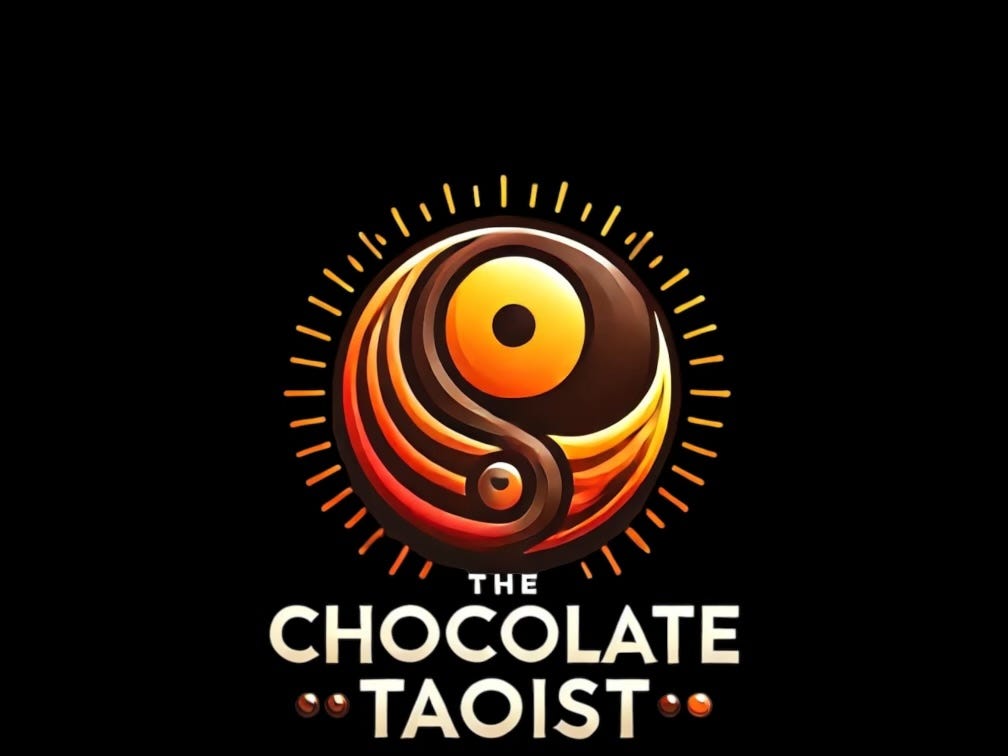My Imaginary Therapy Session with Psychotherapist Mark Epstein
…..he told me to stop fighting the chaos and start living through it
I stepped into my vicarious therapy session with Buddhist psychotherapist Mark Epstein like a man bracing for a storm. It’s not like I haven’t done the mental work—I’ve been deep in the trenches of personal exploration for years. But lately, everything feels like the fire of life has been turned up to scorching levels .
The political insanity, social divisions, the economic roller coaster—it’s like the universe has decided to press fast forward on chaos. So here I am, sitting with a guy who’s spent his life meshing Buddhism with Western psychotherapy.
Let’s get one thing straight: I’m a fan of Epstein’s work. His book The Trauma of Everyday Life hit me like a punch to the gut when I first read it. He didn’t dance around the mess of existence; he dove right in and told me that suffering isn’t something we’re supposed to “fix.”
No, he asserts. Suffering is baked into the damn cake, and the sooner we accept that, the better. But that’s the thing—how do you accept chaos without losing your mind? That’s what I’m here to figure out.
Epstein sits there in my mind, calm as a monk on a mountaintop, and I can’t help but think how the hell is he so steady while the world is burning? He’s got that Buddhist stillness, the kind you can’t fake, the kind that says, “I see you’re spinning out, but guess what? You don’t have to.”
He starts in, not with some cliché therapy question, but with a reminder that floors me every time I hear it: impermanence. Yeah, yeah, we all know it. Change is the only constant, yada yada. But Epstein isn’t just quoting bumper stickers. He’s talking about the real deal: everything is crumbling, and the joke’s on us if we ever thought we had control over any of it.
I’m sitting there, chewing on that idea, and he leans in a little. “It’s not about solving the uncertainty,” he says. “It’s about learning to sit with it, letting it tear you apart, but not falling to pieces in the process.”
Boom. Going to Pieces Without Falling Apart. I’ve read that book too, and the title alone says it all. In these times, that’s the task, isn’t it? The political landscape is a mess, the economy’s a joke, and here we are, trying to hold it together. But what if, Epstein seems to ask, holding it together isn’t the point? What if the point is to let it all come undone, and in doing so, find something real underneath the rubble?
That’s when Epstein hits me with the Buddhist hammer. He starts talking about the concept of non-self, how all the suffering we’re experiencing—individually and collectively—is rooted in the ego’s desperate need to control. “Who is it that’s suffering?” he asks me, not expecting an answer, but knowing that the question itself might crack open something deeper.
And suddenly, I get it. I’ve been fighting the storm as if I could outlast it, outthink it. But the storm doesn’t care about me or my plans. The storm is. It’s impersonal. It’s life. The only real question is: can I let go of this idea that I’m supposed to be in control?
Epstein would push me here—he wouldn’t let me hide behind intellectual insights. He’d bring it back to the personal, asking me to consider what desires I’ve been clinging to. What fantasies of stability and success have I bought into, thinking they’d somehow make me immune to the chaos?
And damn, he’s right. In this capitalistic frenzy, we’re all fed the lie that if we just hustle hard enough, meditate long enough, or make enough smart moves, we’ll transcend suffering. But Epstein’s work shatters that illusion.
In Open to Desire, he flips the script on our cultural obsession with getting rid of desire. Instead, he says, desire is part of being human. The problem isn’t wanting something—the problem is believing that getting it will fix everything. Whether it’s political power, economic security, or personal freedom, we’re constantly chasing the next thing, thinking it will save us from the mess we’re in.
But guess what? It won’t.
So what’s Epstein’s rebellious, countercultural advice for living through this dumpster fire of a world? Sit in the middle of the flames and breathe. Sounds almost too simple, right? But that’s the genius of it. In the middle of the chaos, the breath is the one thing you can always return to. It’s not about escaping the madness. It’s about learning to live with it.
He’d remind me, as he does in Advice Not Given, that the only real way out is through. There’s no magic bullet, no perfect plan, no political movement or financial strategy that’s going to make this wild ride smooth. What we’ve got, instead, is the opportunity to let the chaos reshape us, to let it tear down our illusions of control and show us something real. And that’s where the real freedom lies.
As I sit there, absorbing his words, I realize that Epstein’s advice isn’t about passive acceptance. It’s about radical surrender—the kind where you stop resisting what’s happening and start living fully in it. It’s the kind of rebellion the world needs right now, not the mindless reactionary kind, but the deep, spiritual rebellion against fear, against ego, against the lie that says we’re supposed to have it all figured out.
Epstein, with his Buddhist-informed therapy, hands us the ultimate paradox: The more we let go of needing the world to make sense, the more grounded we become in the middle of the chaos. The storm rages on, but we don’t have to be carried away by it.
I leave this vicarious session with an unexpected sense of power. The world’s not going to stop spinning, and the chaos isn’t going to magically resolve itself. But maybe that’s not the point. Maybe, just maybe, the point is to lean into the madness, to let it crack us open, and to discover who we are when we stop fighting the storm.
I invite you to subscribe today as a member supporter. Every bit counts as I strive to deliver high quality feature articles into your inbox on a daily basis. Never any paywalls, just my raw thoughts that are open to everyone.







Well, okay, I'm going to sit with this a bit. Certainly trying to fix the chaos isn't working. But I get stuck on the issue of trying to make this world a little terrible for vulnerable people. Does your perspective prioritize personal peace over doing anything about other people's suffering? Can there be a both/and?